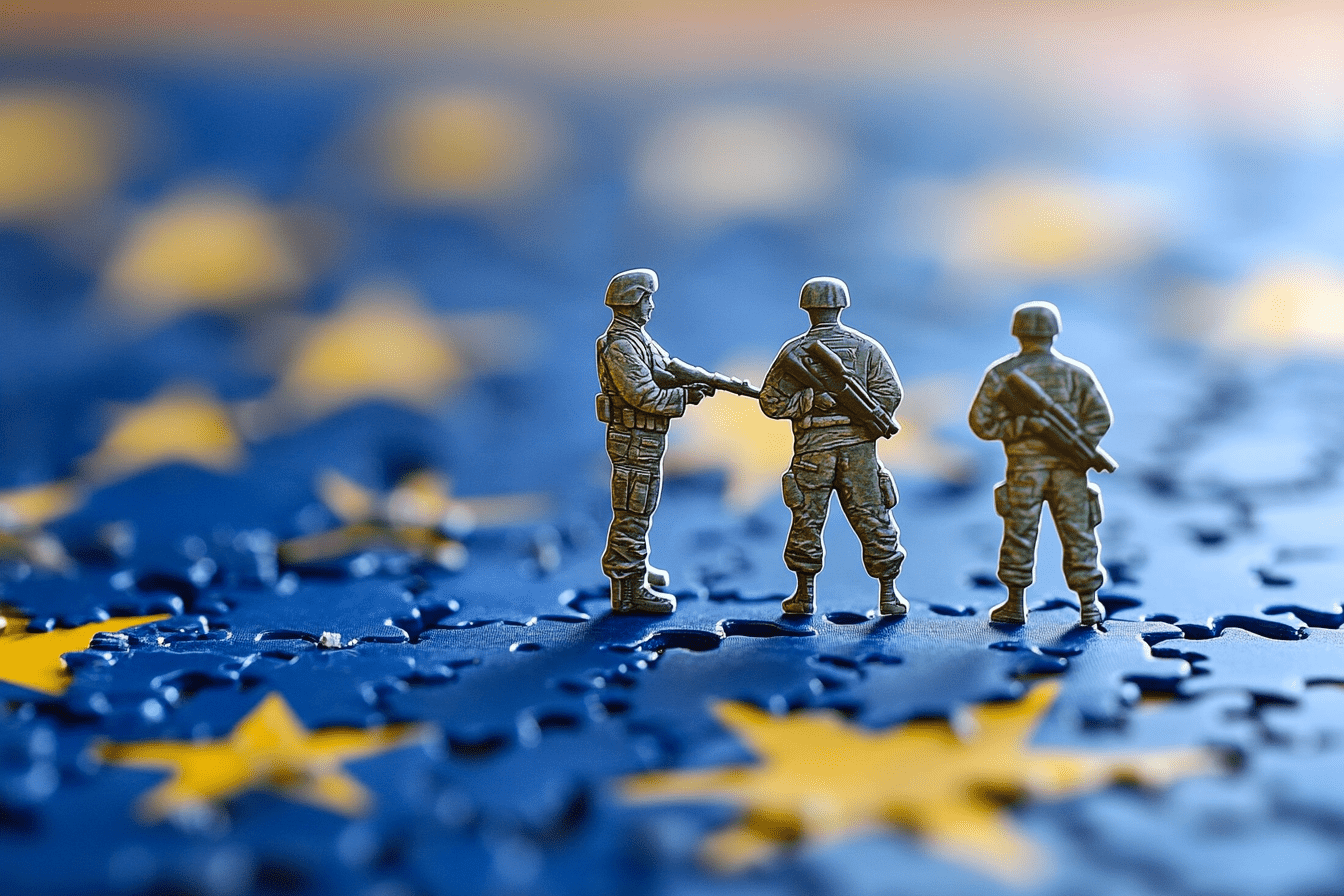Policy Brief n. 31 - Before Vegetius: Critical Questions for European Defense
In a more dangerous and unstable world, Europe must thus prepare for war to maintain peace and its security: as Vegetius noted, si vis pacem para bellum. However, increasing budgets is not enough if the EU does not address key strategic questions.

Executive Summary
Calls for Europe to do more in defense are long-dated. So far, the picture is mixed. On the one hand, European countries have competent armed forces capable of operating effectively in most contingencies and several areas of the world.
The European defense industry is advanced and produces first-class weapon systems. Finally, but more importantly, European countries (e.g. those belonging to the UE and NATO) are still at peace. On the other hand, European armed forces can generate limited combat power as their armed forces can be employed only for a relatively short time.
The European defense industry has limited capacity to increase production and, when it comes to leading-edge technologies, it is struggling to catch up both with U.S. prime contractors (which benefit from higher and more constant procurement budgets) and with start-ups opening in new emerging fields.
To address these problems, European countries have started increasing their defense expenditure, bringing it to over €300bn in 2024 vis-à-vis €180bn a decade ago.
Additionally, the new European Commission wants to break with the past: in the words of Andrius Kubiliu, the new EU Commissioner for Defense and Space, the EU should move away from incrementalism and adopt a “big bang” approach, inter alia this means making another €100bn available for weapons acquisition from the EU budget – which would add to the €100bn+ combined national procurement expenditure European countries should reach this year.
These are unprecedented developments that could hardly have been anticipated a few years ago and maybe even a few months ago.
As threats are multiplying, challenges arising, and budgets are growing, in this report we identify some of the questions that need to be addressed for promoting more European defense.
Why more European defense? Europeans need to be clear about their policy priorities given that time is short and resources are scarce.
Why not more European defense yet? Without grasping why more European defense has not been achieved yet, the risk of repeating past mistakes is high.
What is to be defended? Defense policy is about identifying the military instruments necessary to achieve military objectives for the purpose of specific political goals. European countries need to clarify what they want to defend in order to understand what defense they need to develop.
What is more European defense? European defense has many different possible meanings: it points to inputs (resources), outputs (military instruments), and goals, it points to institutional solutions but also governance mechanisms.
How much is enough? Once we look at what more European defense may mean and compare Europe to the U.S., China, or Russia, we still cannot say whether European defense is too small or too big, and more importantly whether it goes in the right or wrong direction. To understand this issue, political goals must be translated into specific strategies, defense postures, and force structures. The goal is not to have efficient spending but an effective defense: the destruction Ukraine is suffering shows that the costs of defense are always lower than the costs of war.
Where are the problems, gaps, and shortfalls? European countries’ defense policies, armed forces, and defense industries suffer from different problems which, however, are a product of specific strategy-posture-structure choices. Europe’s military problems must be gauged from this perspective, not in abstract terms.
What are the trade-offs, the unintended consequences, and the possible vulnerabilities? Any strategy entails choices and choices have consequences. Since strategy is about complicating the adversary’s calculations, European countries do not just want to develop their own strategies, they also want to understand how the adversary is planning and reacting and thus what trade-offs, unintended consequences, or vulnerabilities it can exploit.
More or different, efficient or effective defense? Technology luminaries like Elon Musk are increasingly calling on the incoming administration of Donald Trump to turn upside-down and also the U.S. defense. The idea is that the model of SpaceX and Tesla can be replicated at the Pentagon. Whether they are right or wrong is difficult to say, but either way, European countries should pay attention to these developments, either because Europe wants to adopt effective solutions or because, should these radical approaches fail, Europeans could find themselves without the full military support of the United States.
We do not have answers to all the questions or to all their implications. However, we have some recommendations:
The process of strengthening European defense should occur in dialogue, not in opposition, to the United States: it is in both actors’ interests, this approach would make it more effective and also reduce significantly both the costs and the times.
Over the years, a functional division of labor between NATO (military) and the EU (industry and markets) has emerged: this should be exploited rather than addressed.
Europe lags behind not only in defense but also in defense analysis: many of the questions highlighted in this report require studies, war games, and simulations which, however, relatively few countries, armed forces and think tanks can conduct in Europe. Without addressing this gap, it will be very hard to significantly improve the state of European defense.
In particular, as European countries increase their defense budgets, a fundamental question is whether they should invest more in airpower or naval power, in artillery or tanks. Translating defense budgets into coherent and effective strategies requires assessments of relative strengths and vulnerabilities, technological trajectories, and innovation opportunities. European countries do not want to increase budgets horizontally (a bit to all domains) following a political rather than a strategic logic.
Europe also lags behind in innovation. Recent EU and NATO initiatives are unlikely to address this issue. European countries should create a DARPA-like organization. However, this organization should perfectly follow the U.S. model, i.e. keep bureaucrats and politicians away and grant its staff the necessary room of maneuver to take risks, start projects, and develop ideas.
Many want more start-ups in defense. However, without opening defense procurement to non-traditional defense companies, any initiative is doomed to fail.
IEP@BU does not express opinions of its own. The opinions expressed in this publication are those of the authors. Any errors or omissions are the responsibility of the authors.


